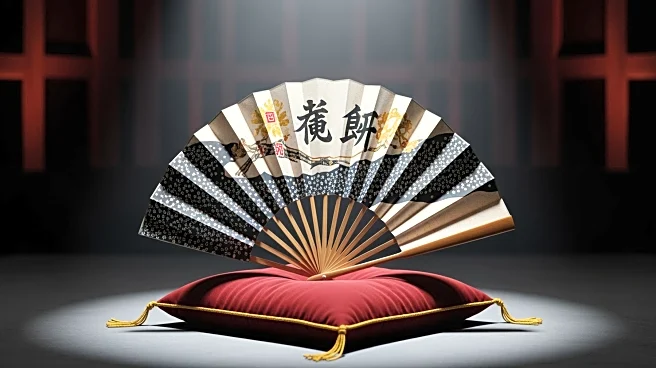What's Happening?
Kazuchika Okada, the AEW Unified Champion, has suggested that Wrestle Kingdom 20 should break from tradition by featuring Hiroshi Tanahashi's final match as the main event, rather than the world title match. Wrestle Kingdom 20, scheduled for January 4
at the Tokyo Dome, is New Japan Pro Wrestling's premier event. Tanahashi, a pivotal figure in the company's revival and current President, is on a retirement tour. Okada, who has a history of main eventing Wrestle Kingdom with Tanahashi, believes this match deserves the spotlight, despite the usual precedence of the world title match. This decision could impact the title match where Konosuke Takeshita defends against Yota Tsuji.
Why It's Important?
The proposal to feature Tanahashi's retirement match as the main event signifies a potential shift in New Japan Pro Wrestling's event structuring, emphasizing the significance of legacy and personal milestones over traditional championship hierarchy. This could influence future event planning and fan engagement strategies, highlighting the emotional and historical value of wrestling narratives. For Takeshita, not being in the main event could serve as a learning experience, potentially affecting his career trajectory and fan perception.
What's Next?
If Okada's suggestion is accepted, it could set a precedent for future events, where personal milestones might overshadow championship matches. Stakeholders, including fans and wrestlers, may react to this shift, influencing New Japan's event planning and marketing strategies. The decision could also impact Takeshita's career, as he navigates the implications of not headlining a major event.
Beyond the Headlines
This development raises questions about the balance between tradition and innovation in wrestling promotions. It highlights the cultural significance of honoring veteran wrestlers and the potential for emotional storytelling to drive fan engagement. The decision could also reflect broader trends in entertainment, where personal narratives increasingly compete with traditional formats.
















